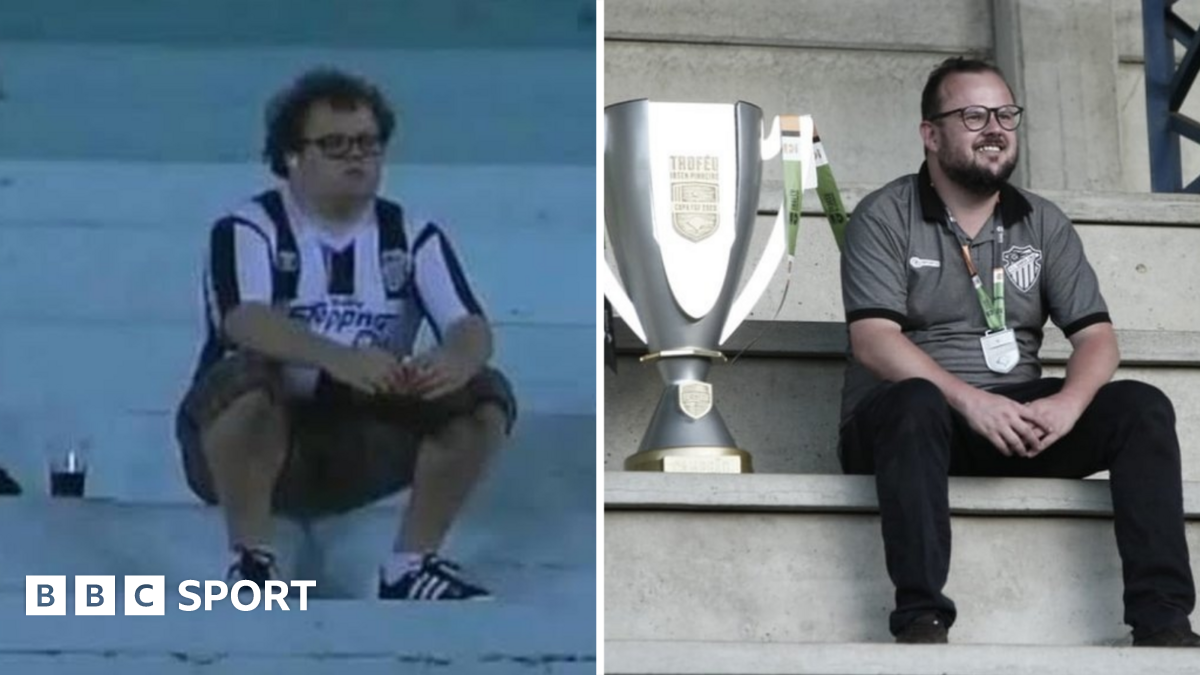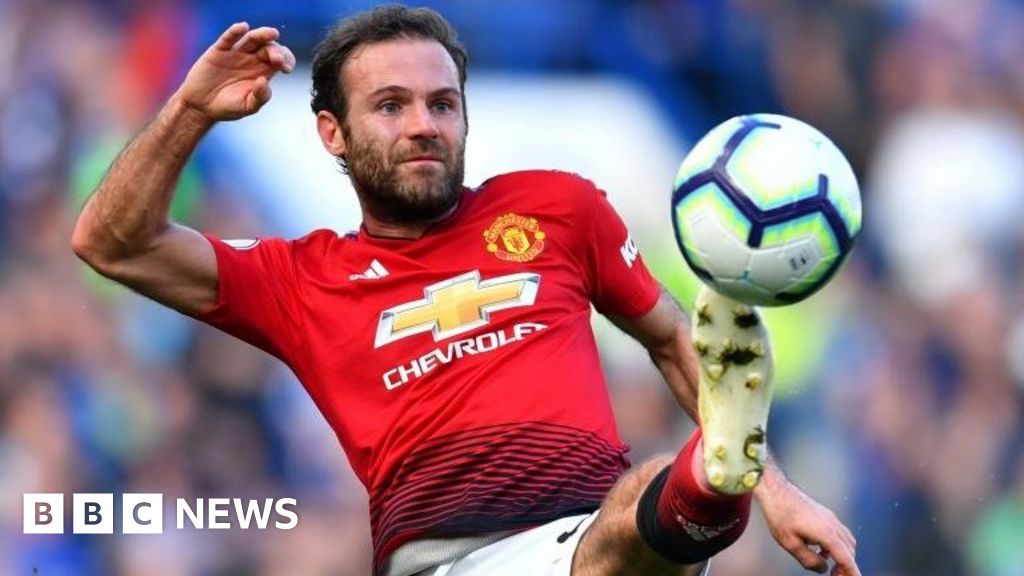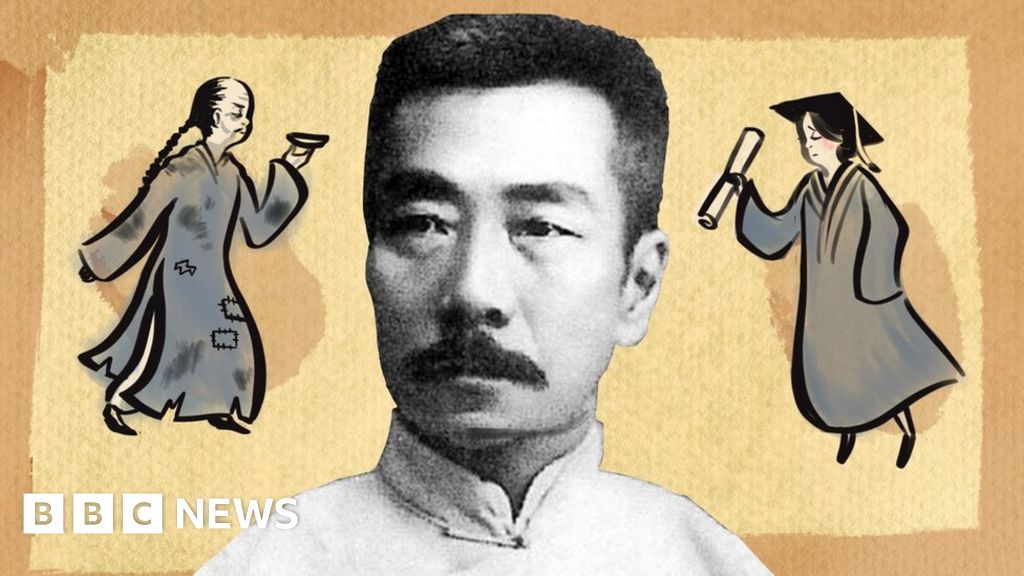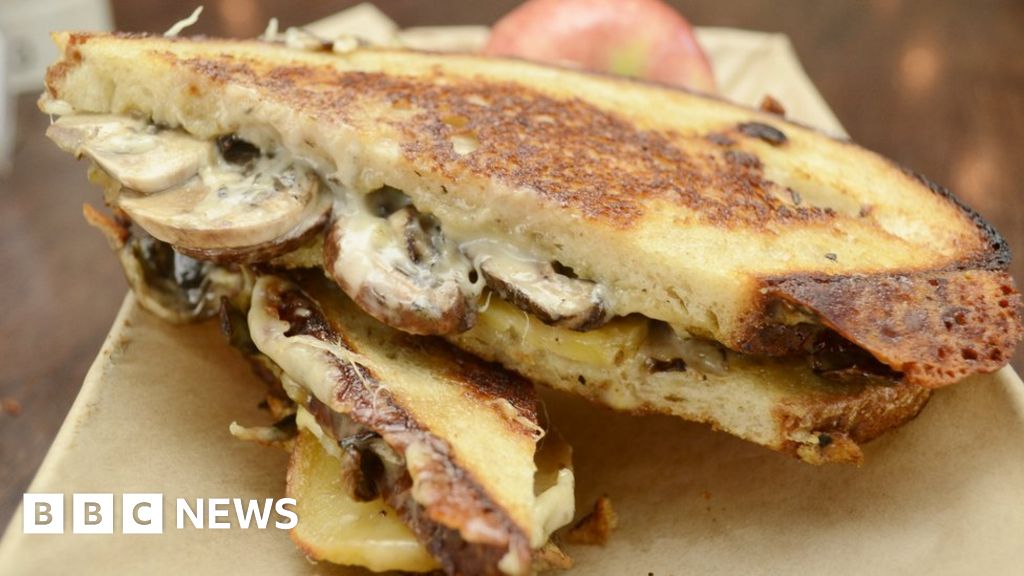The lone away fan who led his club to glory

[ad_1]
The next morning, an image of him sat alone in the stand, a half-drunk plastic cup next to him, was on the front page of the paper at which he worked. “Don’t Leave Me Alone” read the headline.
Soon, the image and story were heading around the world and drawing comments courtesy of online coverage and a YouTube clip that quickly rocketed past 1m views.
That wasn’t the end of the story, though. It was barely the beginning.
A year later, at the end of a dire campaign, Santa Cruz had just been relegated to the second tier. Tiago was living back at home having left his job.
But a chance meeting with the then club president gave him the chance to turn his hobby into something more. They got chatting, Tiago told him he was out of work and a job offer was made in return.
With players operating to season-long contracts, there were only four people employed by the club at that time – the president, manager, a supervisor and secretary. Tiago became the fifth, operating ostensibly as their communication and marketing man, but eager to branch out into every area possible.
“I would look for sponsors, I would talk to the fire brigade about security and to the police. So I did much more than just communications,” he says. “I joke that that I would end up taking the corner, heading the ball in the box, and then racing to the back to defend.”
This was a crash course in football administration, one that enabled Tiago to marry his passion-driven ideas to the practical reality of achieving them.
“When I was just a fan I would always be criticising from the stands,” he says. “Why didn’t the team grow? Why were we such a small club?
“But now I could see the difficulties of being a little football club, trying to survive – you’re dealing with a lack of money, lack of resources, lack of sponsors, just a general lack of support.”
He attended club dinners on a Friday – a tradition since the 1980s – to rub shoulders with directors and political figures of the city, including the mayor.
Relationships were built and ideas shared. Tiago’s revolutionary plan was for the club to move away from the constant churn of contracting players and a manager for one short season and then starting all over again the following year. He felt they should play all year round, with a more consistent playing staff.
It intrigued the Santa Cruz advisers, so much so that when the time came to elect a new president there was only one man for the job – the 27-year-old fan turned club employee.
“I had dreamed for a long time about the idea that one day I would be president of the club,” admits Tiago.
“I always say it’s not an accident that I became president at 27. The club wasn’t doing well, the directors were very old, we needed new people and they could see I wanted it so I got elected.”
His father took more convincing, having seen the negative impact the role had taken on friends of his, but ultimately backed his son’s dream.
It quickly became a nightmare.
“To begin with it was great,” explains Tiago. “We got some good players, I got some new sponsors, we started winning but by the third month things were going wrong
“We started to run out of money, the games were happening in the winter and it gets very cold here, it rains, so there weren’t so many fans coming to the matches which meant we were selling fewer tickets and in the end it got very hard.”
Debts began to pile up. Tiago asked his father for a loan to pay players, he maxed out credit cards and put all of his savings into the club – money his parents had helped him amass to use to buy an apartment.
Santa Cruz avoided relegation but Tiago’s one year of presidency had taken a heavy toll.
“I got very depressed,” he says. “When the championship was over I would stay in bed all day. I was just sad and so down, to the extent that I had to go to the doctor and get medication to try and get better.
“In the end the doctor and my dad came to the decision that I needed to stop running the club that I needed go back to my old life.”
So that is what he did. He got treatment for his depression, moved back to Port Alegre, returned to journalism and became just a humble fan of Santa Cruz once more.
Unfortunately, the club’s fortunes did not improve. After seasons of struggle, they were relegated to the third tier in 2018, prompting suggestions they may have to fold.
It was around this time that Tiago returned to his home town and bumped into an old friend, a local business owner, who made a crazy but desperate plea to him – that the club would close unless he came back as president.
Despite all that had gone before, he decided to take up the challenge, but this time armed with lessons from the past. They built slowly, accrued sponsors, paid off debts.
“It really helped that our players came from the city, so the community supported us – families would come to the game so we had fans and an income and we started to be able to pay off our bills,” says Tiago.
It is a testament to the work done that even a global pandemic that interrupted two seasons was unable to halt their progress. In fact, it may even have helped the club to a degree.
In September 2020, it was decided that a shortened championship season would take place, with only 10 teams participating. The absence of some of the bigger clubs enabled Santa Cruz to convince members of their squads to come and play for them.
With their help, three months later the club won their first-ever title – the Copa Federacao Gaucha de Futebol.
“It was incredible, fantastic, sensational, I cried, I celebrated,” recalls Tiago. “The games were a bit strange because there was no crowds, just a few people were watching.” It is a feeling Tiago knows well.
Source link




